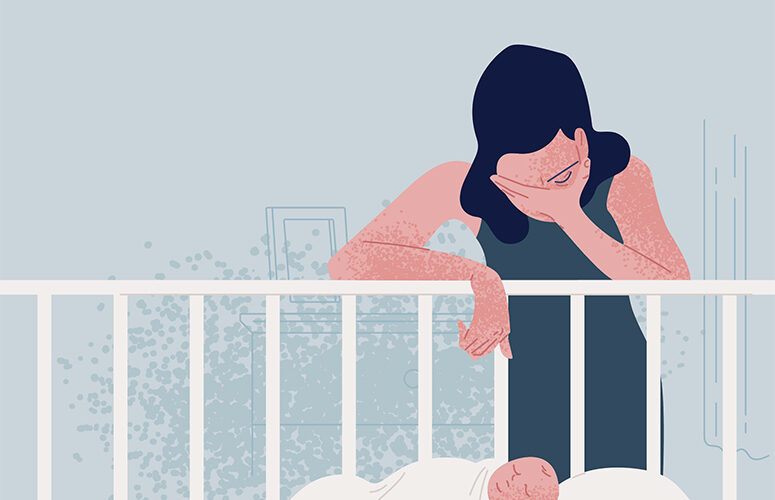
Handling Postpartum Depression
By Tia DeMille Welsh On Jun 20, 2023Having a baby can be a very exciting time in a woman’s life. However, it can also bring challenges. According to the Centers for Disease Control and Prevention, one in eight women report symptoms of depression after giving birth. Postpartum depression typically begins one to three weeks after giving birth, but can occur up to a year later. Symptoms include intense sadness, anxiety, and hopelessness; loss of interest in activities; withdrawal from friends and family; and thoughts of hurting oneself or the baby. Postpartum depression also interferes with the ability to complete daily life activities. This condition often does not go away on its own and usually requires medical treatment. Here are some tips and facts to help you understand postpartum depression and how to combat these feelings.
- It is important to speak to someone. Do not feel embarrassed or afraid to speak about your feelings. Speak to a healthcare provider whether it be your obstetrician/gynecologist, pediatrician, or primary care physician. Speaking to your family members or even your friends can clue someone to assist you in obtaining care. Feeling validated is important on your journey to feeling better and can be an adjunct to therapy or medication.
- The fourth trimester, which starts with birth and ends after 12 weeks, is as vital as the time before birth. Postpartum depression can affect mother-child bonding, breastfeeding, maternal hygiene and health, and maternal relationships.
- Postpartum depression can include symptoms of sadness to symptoms of psychosis, which could result in a hospital stay.
- Coping with depression includes giving yourself grace and taking time to adjust and recover. For every woman, this is different. Not comparing yourself to others is key. Postpartum depression does not have a look or a face, and you never know who may also be experiencing symptoms.
- Know that this is temporary. Eat well, sleep well, stay hydrated, talk to others, and seek help.
Tia DeMille Welsh, MD, chair, women’s services, Valley Medical Group, specializes in obstetrics and gynecology. For more information about women’s services at Valley, please visit ValleyHealth.com/WomensServices.
To access more business news, visit NJB News Now.
Related Articles:





